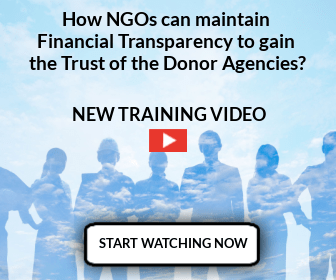
Deadline: 30-Nov-22
One Young World is inviting applications for its Lead 2030 Challenge to support Sustainable Development Goal 3 “Good Health & Well-being”.
For this Challenge, AstraZeneca is seeking innovative, youth-led projects which tackle the causes of air pollution and focus on the long-term health of young people.
Benefits
The winning solution will receive:
- A US$50,000 grant from AstraZeneca Young Health Programme
- 12 months of mentorship from a team of AstraZeneca Young Health Programme professionals. The mentorship team will work to accelerate your solution based on the needs of your initiative or organisation, such as:
- Business strategy
- Best practices for data collection
- Monitoring and evaluation
- Product design
- Participation in the One Young World Summit 2023 in Belfast. Flights and accomodation included.
- The opportunity to join AstraZeneca’s Young Health Programme (YHP) Alumni Group. The YHP Alumni Group offers learning and development opportunities and networking between Grantees as well as young leaders who have received YHP Scholarships. In the past, Alumni Members have been offered mini-MBA programmes, opportunities to share their work with global audiences, and masterclasses on fundraising and digital skills to build effective health-promotion programmes.
- Visibility and promotion by AstraZeneca’s Young Health Programme and the One Young World team
Challenge Criteria
- Aligned: Evidently aligned with the challenge.
- Youth-led: Founded and led by a person aged 18 – 30.
- Focused: Well-structured time horizon, identified key stakeholders and beneficiaries, and proposed outcomes that are reasonable and well thought out.
- Market ready: Product/service already in market or ready to go to market.
- Impactful: Solutions must have a positive social impact, creating legislative change or measuring behaviour change.
- Measurable: Impacts of solutions must have been adequately measured and/or be measurable.
- Financially viable: Must be able to achieve efficiency and to survive independently through the resources they generate and/or the investments and donations they attract.
- Scalable: Potential to perform as well or better after expanding in scope or size and/or being transported to other regions.
- Location: a preference will be given to projects which operate in a low- or lower-middle- income country or setting. Projects should also focus on cities or communities with high levels of air pollution or pollution-related illness.
What they are looking for?
- Projects which focus on individual behaviour change, new technologies, or multi-stakeholder advocacy approaches to change laws/policies.
- Sustainable solutions which can be scaled up to be implemented in other communities
- Projects should focus on cities or communities with high levels of air pollution or pollution-related illness. A preference will be given to projects which operate in a low- or lower-middle- income country or setting.
- Projects should be youth-led, where young people (30 and under) are involved in the design or delivery of the initiative, and where the long-term health of young people is at the heart of the solution.
- Projects should also focus equally on tackling air pollution (indoor or outdoor) and its link to long-term health.
- Projects with a focus on the health of women and girls are preferred.
Eligibility Criteria
- This Lead2030 Challenge will be supported by AstraZeneca’s Young Health Programme. To be eligible for this grant, the funding must be payable to a registered non-profit organisation that is accountable for delivering the project.
- Projects cannot incorporate treatment of medical conditions or the promotion or prescription of medicines but should instead focus on the promotion of healthy lifestyle behaviours and the prevention of disease.
- The project must be delivered by a registered non-profit organisation which is able to pass due diligence and verification checks. This will include documentation to ensure the projects meet legal requirements on international charitable donations. You must complete this stage before the grant payment is made. Documents may include a copy of your organisation’s governing document (eg articles of incorporation), a certificate of charitable registration in your country, most recent annual financial accounts, a bank statement from the last 3 months as proof of your organisation’s bank account, and details of your Trustees/Directors’ full names, residential addresses and dates of birth.
For more information, visit https://www.oneyoungworld.com/lead2030/22-23/challenge-sdg3-astrazeneca
Next>>
<
